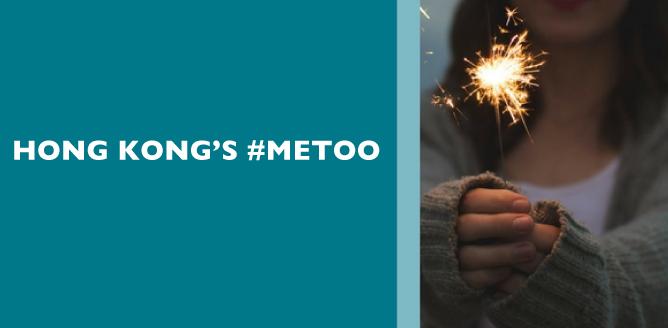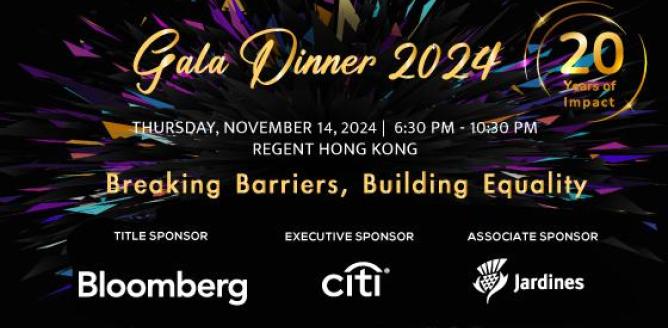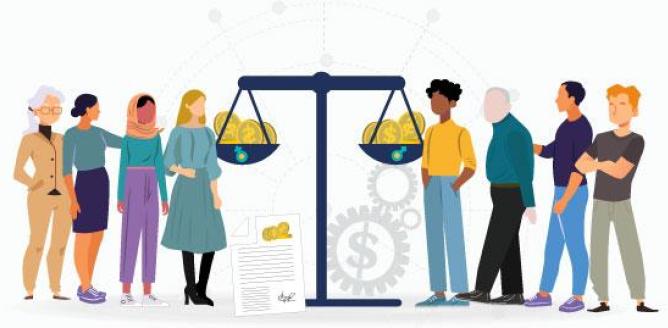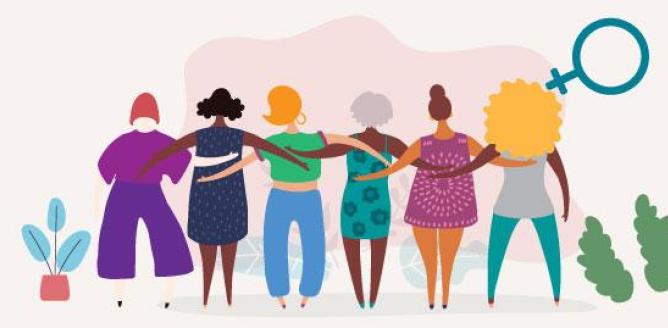“One of the worst things about experiencing sexual trauma is feeling like you’re all alone.” – Tarana Burke, creator of #MeToo
Nearly half a year since the hashtag #MeToo went viral, the movement has spread globally and is showing no sign of slowing down. Hong Kong was one of the first places in Asia that experienced a #MeToo moment with high-profile survivors like star hurdler Vera Lui, who spoke up about her traumatic experience in late November.
The announcements in Hong Kong didn’t create a seismic shift, but #MeToo unleashed a wave north of the border. Social media posts from Beijing-based journalist Sophia Huang Xueqin and US-based academic Luo Xixi breaking their silence about sexual harassment encouraged other women to speak up. Following accusations of sexual harassment, Beihang University suspended Luo’s former professor and PhD supervisor, Chen Xiaowu. The campaign that swept through mainland Chinese academia saw other university officials lose their jobs as well. Huang conducted a poll on WeChat that revealed over 80% of female journalists experienced workplace sexual harassment. “‘Me Too’ was an alarm bell for all of us,” she said.
#MeToo has opened a floodgate in South Korea, ignited by public prosecutor Seo Ji-hyun’s disclosure in late January that she was groped by a former senior Justice Ministry official years ago – yet when she reported it to her superiors, she was demoted. Emboldened survivors exposed other high-profile figures, from filmmaker Kim Ki-duk, poet Ko Un to onetime presidential contender Ahn Hee-jung, who resigned as Chungcheong governor as the result.
The #MeToo campaign in South Korea has led to an accompanying hashtag #WithYou and to President Moon Jae-inthrowing in his support behind the movement. Netizens in mainland China, however, having to evade censorship, came up with #RiceBunny, a homophone of #MeToo, after #MeTooInChina was scrubbed online. More recently, the anti-sexual harassment campaign there dealt a blow when Weibo shut down Feminist Voices’ accounts on International Women’s Day, followed by WeChat the next morning.
Statistics show that 1 in 7 women in Hong Kong has experienced sexual assault but 90% of them choose not to report it. But we also know that reports received by local NGOs that support sexual assault survivors have doubled since #MeToo became viral, and conversations around #MeToo are happening in Hong Kong, just not as publicly as in other countries.
On the heels of the global campaign, TWF is organising a series of events to examine the root causes behind sexual harassment and sexual assault in Hong Kong. The first of such events is a talk titled “Hong Kong’s #MeToo: understanding the issues and taking action” on Friday, 23 March. Hosted by Thomson Reuters, it will feature speakers: Linda Wong, Executive Director of the Association Concerning Sexual Violence Against Women; Anna Ng, Chair of the Hong Kong Association of Sexuality Educators, Researchers & Therapists; and Peter Reading, Legal Counsel of the Equal Opportunities Commission; with me, Fiona Nott, moderating.
The announcements in Hong Kong didn’t create a seismic shift, but #MeToo unleashed a wave north of the border. Social media posts from Beijing-based journalist Sophia Huang Xueqin and US-based academic Luo Xixi breaking their silence about sexual harassment encouraged other women to speak up. Following accusations of sexual harassment, Beihang University suspended Luo’s former professor and PhD supervisor, Chen Xiaowu. The campaign that swept through mainland Chinese academia saw other university officials lose their jobs as well. Huang conducted a poll on WeChat that revealed over 80% of female journalists experienced workplace sexual harassment. “‘Me Too’ was an alarm bell for all of us,” she said.
#MeToo has opened a floodgate in South Korea, ignited by public prosecutor Seo Ji-hyun’s disclosure in late January that she was groped by a former senior Justice Ministry official years ago – yet when she reported it to her superiors, she was demoted. Emboldened survivors exposed other high-profile figures, from filmmaker Kim Ki-duk, poet Ko Un to onetime presidential contender Ahn Hee-jung, who resigned as Chungcheong governor as the result.
The #MeToo campaign in South Korea has led to an accompanying hashtag #WithYou and to President Moon Jae-inthrowing in his support behind the movement. Netizens in mainland China, however, having to evade censorship, came up with #RiceBunny, a homophone of #MeToo, after #MeTooInChina was scrubbed online. More recently, the anti-sexual harassment campaign there dealt a blow when Weibo shut down Feminist Voices’ accounts on International Women’s Day, followed by WeChat the next morning.
Statistics show that 1 in 7 women in Hong Kong has experienced sexual assault but 90% of them choose not to report it. But we also know that reports received by local NGOs that support sexual assault survivors have doubled since #MeToo became viral, and conversations around #MeToo are happening in Hong Kong, just not as publicly as in other countries.
On the heels of the global campaign, TWF is organising a series of events to examine the root causes behind sexual harassment and sexual assault in Hong Kong. The first of such events is a talk titled “Hong Kong’s #MeToo: understanding the issues and taking action” on Friday, 23 March. Hosted by Thomson Reuters, it will feature speakers: Linda Wong, Executive Director of the Association Concerning Sexual Violence Against Women; Anna Ng, Chair of the Hong Kong Association of Sexuality Educators, Researchers & Therapists; and Peter Reading, Legal Counsel of the Equal Opportunities Commission; with me, Fiona Nott, moderating.
TWF is determined to raise awareness and help drive the conversation to create change. Please join us.
As usual we would love to hear from you. Get in touch at Fiona.Nott@twfhk.org.
As usual we would love to hear from you. Get in touch at Fiona.Nott@twfhk.org.





















